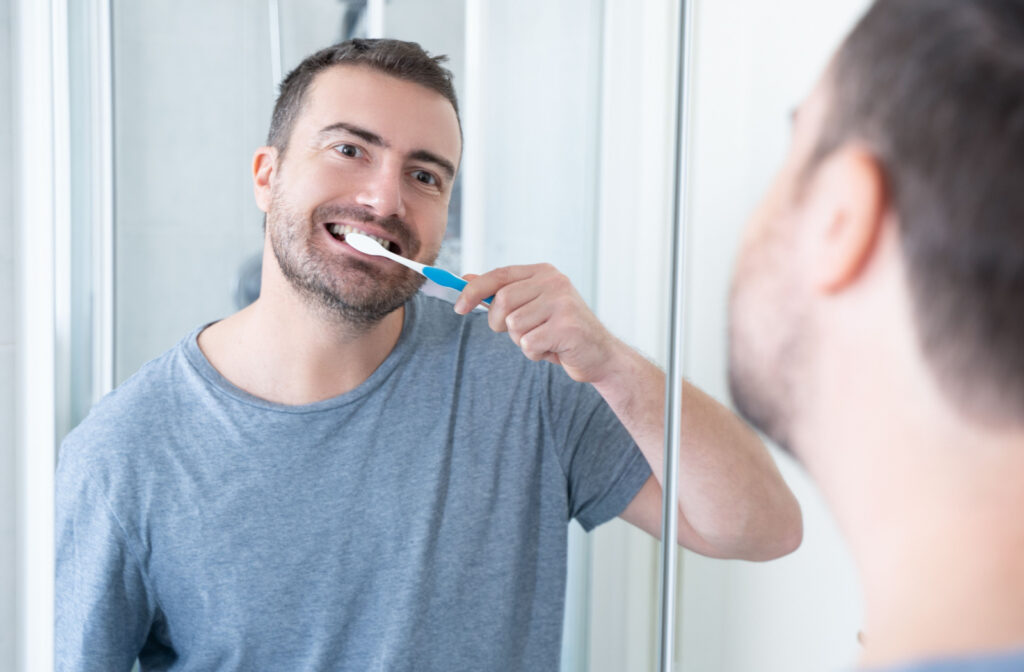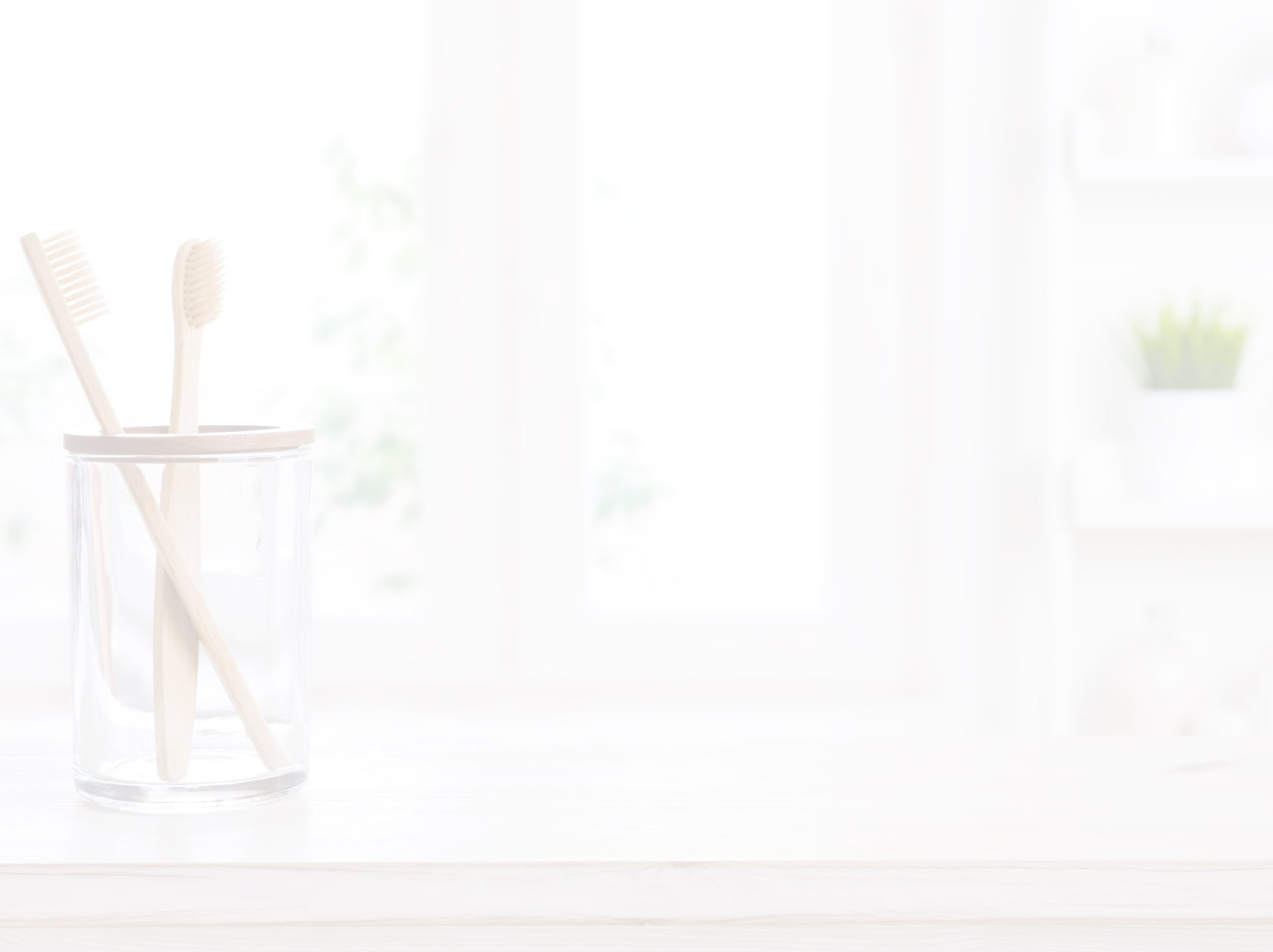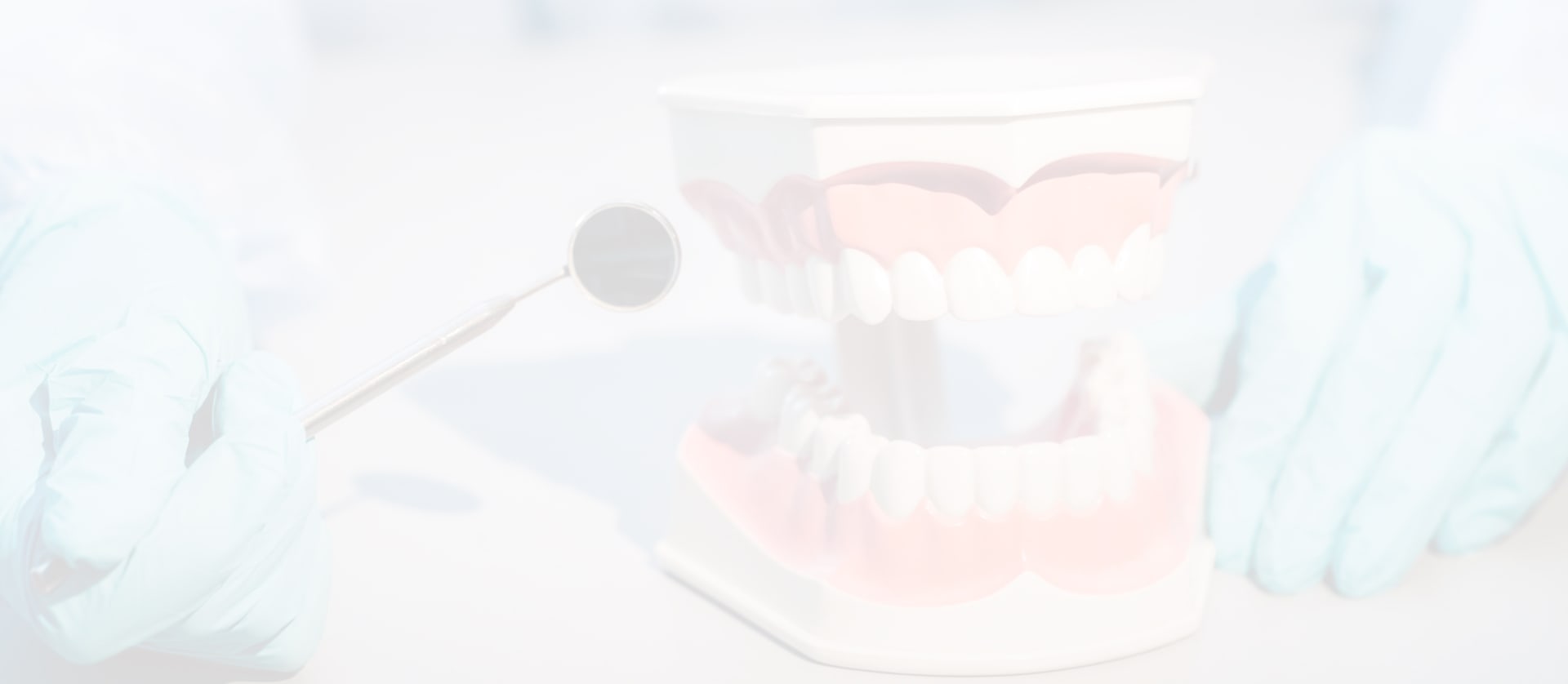Maintaining good oral hygiene is essential for a healthy smile and your overall well-being. Brushing and flossing are two important parts of your dental care, but the order they should be performed has been debated by many people. While some people may find brushing first more convenient, others may prefer to floss and remove food particles from between the teeth. Should you brush your teeth or floss first?
Determining which order to brush your teeth and floss greatly depends on your own personal preference, the health of your teeth and gums, and the advice of your dentist. The order doesn’t make a big difference—it’s much more important that you do both rather than focus on the order.
However, it can help to seek the advice of your dentist if you’re unsure about brushing or flossing first. They can perform a comprehensive dental exam to determine if a change to your oral hygiene routine can be beneficial.
Should I Brush My Teeth Before Flossing?
Brushing your teeth with fluoride toothpaste is the cornerstone of any oral care routine. By using a soft-bristled toothbrush, you can dislodge food particles, plaque, and bacteria, making it easier to reach other areas between your teeth with floss later.
It also exposes your teeth to fluoride, which is extremely efficient for strengthening your enamel and preventing tooth decay. Fluoride toothpaste contains certain minerals that can help keep your teeth strong and healthy while adding prevention against cavities. By brushing your teeth as the first step of your oral care routine, you allow these beneficial things to interact with your teeth and gums.
However, it’s important to consider both sides of the debate before determining which way you’d prefer to take care of your oral health.
Should I Floss Before Brushing My Teeth?
Flossing is another extremely important part of your dental care routine. It cleans the area between teeth and along the gumline, helping dislodge food particles that may be stuck in hard-to-reach places that a toothbrush can’t reach.
By using dental floss, you can remove plaque and food particles from between your teeth and along the gums, and if performed before brushing this can help reduce the likelihood of particles being pushed further into these areas later.
It also removes debris that may slow or stop the bristles of the toothbrush from reaching all areas of your teeth. Removing these barriers allows your toothbrush to reach more areas in your mouth, making brushing much more effective. Flossing first can be a beneficial way to make your dental care routine more efficient.
This means that both brushing and flossing have a solid argument for which option should be performed first.
Is it Better to Brush or Floss First?
Determining whether it’s better to brush or floss first depends greatly on your personal preference. While both sides present a solid argument, the most important aspect is that you perform both of these things thoroughly and consistently. By practicing a proper dental care routine, you can keep your teeth and gums healthy for a long time and reduce the risk of developing many different oral conditions.
However, there may be situations where a dentist may recommend changing your dental care routine to suit your specific needs better. Everybody’s mouth is different, making it important to customize your oral care to your own situation. It’s beneficial to speak with a dentist to seek their advice to determine if there may be a way you can improve your overall oral health.
There are several ways you can adjust your oral care to fit your situation to allow for maximum comfort and efficiency. However, if you can’t decide which method to use first, it can be beneficial to combine the methods to work properly for you. You could do a quick pass with a toothbrush, then floss thoroughly, then finish brushing your teeth to ensure thorough cleaning of your teeth and gums.
How to Properly Maintain Oral Health
At the end of the day, the most important thing regarding your oral health is that you thoroughly and consistently practice a dental care routine. By actively remembering to brush your teeth and floss every day, you can help keep your teeth strong and reduce the risk of developing conditions like gum disease or tooth decay.
It’s essential to:
- Brush your teeth at least 2 times a day for 2 minutes at a time. Use a soft-bristled toothbrush and fluoride toothpaste to keep your teeth clean and strong.
- Floss at least 1 time a day, making sure you reach all the areas between your teeth and along the gumline to remove food particles and plaque.
- Use anti-bacterial mouthwash at least once a day to kill any leftover bacteria in your mouth.
By remembering to follow a routine like this, you can stand the best chance of keeping your teeth and gums healthy for a long, long time.
Can a Dentist Help Improve a Dental Care Routine?
When it comes to deciding whether you should brush or floss first, there is no answer that suits everybody’s needs. The most important thing is that you make sure to remember to do both every day, as consistency is one of the most important factors when it comes to dental care. Since both of these methods play a vital role in your oral health, they’re a great way to optimize your dental care.
Fortunately, you can always seek the advice of a dentist to see if they can help improve your dental care. By speaking with a trained and qualified professional, you can get personalized recommendations about your unique dental situation, allowing you to build a customized treatment plan to fit your needs. To speak with a caring dentist today, book an appointment with us at Fairlawn Dental Centre in Ottawa.










